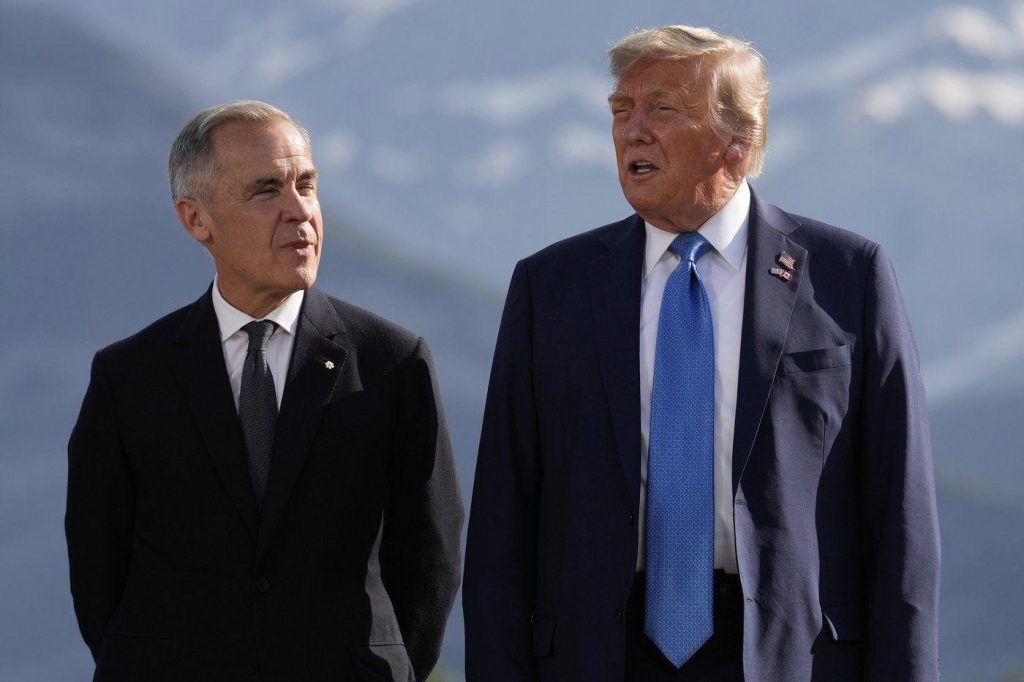Carney and Trump Discuss Trade, Security, and Ukraine in Phone Call

Prime Minister Mark Carney and U.S. President Donald Trump spoke by phone on Thursday in what Canadian officials described as a productive and wide-ranging discussion covering trade, security, and the situation in Ukraine.
Progress on trade between the two countries has been limited since they missed a deadline to finalize a new agreement on August 1. Following the lapse, President Trump raised general tariffs on Canadian goods from 25 to 35 percent. Despite this, a broad exemption remains in place for items that qualify under the United States-Mexico-Canada Agreement.
“The leaders discussed current trade challenges, opportunities, and shared priorities in a new economic and security relationship between Canada and the U.S.,”
according to a summary of the call released by the Prime Minister’s Office.
“The leaders also discussed how to build on the President’s leadership to support long-term peace and security for Ukraine and Europe. The leaders agreed to reconvene shortly.”
U.S. officials also acknowledged the call and stated that trade was a key topic.
Earlier that day, Foreign Affairs Minister Anita Anand met in Washington with her U.S. counterpart, Secretary of State Marco Rubio, marking their first official meeting since she assumed the role over three months ago.
In a statement, a spokesperson from the State Department said the two officials spoke about President Trump’s peace efforts in the Russia-Ukraine conflict, the security crisis in Haiti, Hamas’s “ongoing obstruction of peace in Gaza,” and unspecified “coercive activity” by China.
Their brief public appearance lasted less than a minute in the Treaty Room at the State Department, where they shook hands, exchanged a few inaudible words, and left without making any statements. A scheduled media availability with Minister Anand was cancelled.
The meeting, planned earlier in the week, came just one day after Secretary Rubio announced sanctions on several officials from the International Criminal Court, including Canadian judge Kimberly Prost, in response to the court’s investigation into alleged misconduct by U.S. personnel in Afghanistan.
Brian Clow, a former senior advisor to ex-prime minister Justin Trudeau, noted that the Carney administration faces a difficult balance between resisting U.S. protectionist measures and dealing with growing economic strain.
“They should not accept a bad deal, they should not feel they have to accept just any deal. But at the same time, the current situation can only go on for so long until we start seeing permanent job losses,” he said.
Trade agreements signed by President Trump with countries such as the U.K., Japan, and members of the European Union have required concessions from partners—both in the form of accepting new U.S. tariffs and granting more access to their own markets—in exchange for the U.S. not raising tariffs even further.
These terms represent a sharp departure from the free-trade approach that has shaped North American commerce for decades, which helps explain Canada’s reluctance to sign a new deal under the current conditions.
According to Clow, President Trump appears to be directly overseeing key decisions on trade, which underscores the importance of personal dialogue between him and Prime Minister Carney.
“I really think it all comes down to Trump and his point of view and his decision on things,” Clow said. “Clearly, he is calling the shots.”
